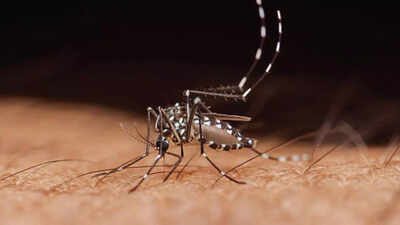ARTICLE AD BOX

MANGALURU: With dengue cases steadily on the rise, its prevention has become a collective responsibility, said Mangaluru City Corporation Commissioner Ravichandra Naik. Pointing out that dengue, spread by Aedes mosquitoes, used to be seasonal (post-monsoon), cases are now being reported throughout the year.
Intermittent rainfall is leading to an increase in mosquito breeding sites, resulting in a spike in dengue cases. Since dengue poses a serious public health threat and could lead to an outbreak, teams of the corporation must undertake larval surveys and aggressively eliminate all breeding sites alongside door-to-door health awareness drives, he stressed.The Commissioner, who was speaking at a meeting related to the Universal Immunisation Programme held at the MCC office on Tuesday, directed officials to levy fines on buildings, houses, and apartments where larval breeding sites are detected.
He also instructed officials to sensitise construction firms, especially at active and halted construction sites, since such places have become major breeding grounds.
Awareness messages must also be relayed through waste collection vehicles, he said.Since a large number of dengue cases are being reported among labourers coming from other states, additional attention must be paid to this population, the Commissioner said.
Awareness campaigns should also be conducted in schools, colleges, nursing and medical colleges, and in every govt and private offices. Every citizen must keep their surroundings clean, install mosquito nets at home, and eliminate any breeding source, he added.Residents must ensure that water does not stagnate in air coolers, refrigerators, ornamental pots, and trays of potted plants. Care should also be taken to prevent water from collecting in and around homes/offices, and solid waste must be disposed of properly, he said.Rabies Awareness: Referring to rabies cases, the Commissioner noted that the number of dog bite cases has increased over the last three years. He called on citizens to ensure timely vaccination and said that, in fact, more cases are being reported from pet dogs than stray dogs. Rabies is a serious viral disease, commonly transmitted by infected dogs and cats, he cautioned.Free vaccines are available in govt hospitals, while veterinary camps are being conducted in rural areas in association with the Animal Husbandry Department. The public should make use of these facilities and seek timely medical guidance, he said. Pet owners must ensure that puppies are not abandoned in public places, as this contributes to the increase in the stray dog population.District Health Officer Dr H.R. Thimmaiah, RCH Officer Dr Rajesh, District Surveillance Officer Dr Naveenchandra Kulal, District Health Education Officer Jyothi K. Ulepadi, and officials from various departments were present.



.png)
.png)
.png)
















 23 hours ago
5
23 hours ago
5









 English (US) ·
English (US) ·